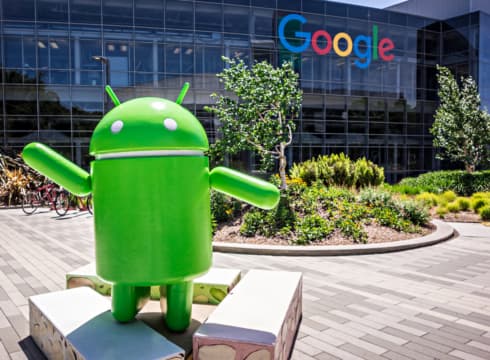Google has said that the CCI directives will end up making smartphones more expensive
The tech major said that the directives could render new users vulnerable to online harm
The competition watchdog has imposed two separate penalties, totalling INR 2,273 Cr, with respect to the tech major’s anti-competitive behaviour
Inc42 Daily Brief
Stay Ahead With Daily News & Analysis on India’s Tech & Startup Economy
In its first public reaction, tech major Google has termed Competition Commission of India’s (CCI’s) antitrust directives a blow to the digital adoption in the country.
“Google has partnered deeply with India in the last several years of its exciting digital transformation. However, at a time when only half of India’s population is connected, the directions in the CCI’s order strikes a blow at the ecosystem-wide efforts to accelerate digital adoption in the country,” the tech major said in a blog post.
In what appeared to be a bid to counter CCI’s claims, Google said that Android was key to India’s mobile and Internet growth story. Citing Android’s ‘free open source’ nature, the tech major claimed that it has helped device manufacturers make smartphones ‘more affordable by a vast margin.’
Touting the country’s digital payments ecosystem and the nation’s pivot to digital mode during the pandemic, the tech major claimed that these services were largely underpinned and powered by Android devices.
Refuting CCI’s contention on fork versions of Android, the tech major said that the directive could render new users vulnerable to online harm.
“Devices built on incompatible ‘forks’ would prevent Google from securing those devices, as these versions will not support the security and user safety features that Google provides… While Google holds itself accountable for the apps on Play Store and scans for malware as well compliance with local laws, the same checks may not be in place for apps sideloaded from other sources,” the tech major said.
Google added that the security responsibilities for such Android fork devices would eventually fall on the manufacturers, who would then have to shell out more money to upgrade their defences.
According to Google, this would result in higher costs for the original equipment manufacturers (OEMs), who would then be forced to raise prices for their devices.
In the blog, Google also claimed that the CCI’s directives would be ‘highly damaging’ for app developers and consumers. The tech major also claimed that small developers would lose their level playing field advantage to big developers, especially when it comes to developing apps for a range of forks.
“In a forked Android environment, small developers will be forced to prioritise which of the various incompatible Android ‘forks’ they write and maintain apps for, as their costs will increase with each additional version they support,” the US-based tech giant said.
Training its guns at the CCI orders, Google put forward a set of counter claims, which are as follows:
- Android operating system enables device manufacturers to build a wide range of devices at different price points
- Android leaves OEMs free to pre-install any other app and app stores
- Users are free to install apps from sources beyond app stores
- For developers, Android offers tools, timely security upgrades and multiple monetisation options
- Android ensures that only the apps that work in accordance with local laws get the benefit of the platform
The CCI’s Verdict Against Google
The competition watchdog has imposed two separate penalties on Google. In the first instance, CCI has fined Google INR 1,337.76 Cr for abusing its dominance in the Android devices market and, in the second order, it has penalised the tech giant for INR 936 Cr over its Play Store policies.
In both the orders, CCI has clearly mentioned that Google enjoyed a dominant position in the relevant markets, which, in turn, created entry barriers for new players.
CCI has noted that Google ‘limited’ technical development and innovation and denied market access to competing players, app developers, and payment aggregators.
The CCI verdict also underlined the tech giant’s alleged bid to perpetuate its dominance in the online general search and non-OS specific web browser market.
While the cumulative penalty of just over INR 2,273 Cr could cause heartache for the tech major, what has also raised concerns at Google are the directives that seek sweeping changes related to the company’s operations in the country.
{{#name}}{{name}}{{/name}}{{^name}}-{{/name}}
{{#description}}{{description}}...{{/description}}{{^description}}-{{/description}}
Note: We at Inc42 take our ethics very seriously. More information about it can be found here.


